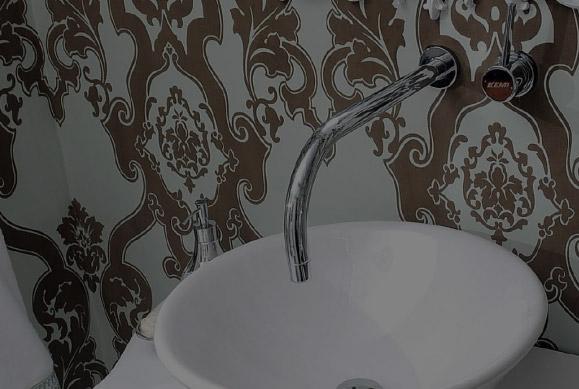Phone:+86-13906742187
Brass construction in faucets contributes significantly to their resistance to rust and corrosion, especially in humid bathroom environments. Here are several ways in which brass helps maintain the durability and appearance of faucets in such conditions:
Corrosion Resistance:
Brass is inherently corrosion-resistant, making it an excellent choice for bathroom fixtures. It contains a combination of copper and zinc, and the resulting alloy forms a protective layer that helps prevent the onset of corrosion.
Low Reactivity:
Brass has low reactivity with water and air, reducing the likelihood of chemical reactions that lead to corrosion. This property is particularly important in humid environments where the moisture content in the air can accelerate the corrosion process.
Durable Finish:
Brass faucets often come with various finishes, such as chrome or nickel plating. These finishes not only enhance the aesthetic appeal of the faucet but also provide an additional layer of protection against corrosion. The finish acts as a barrier, preventing moisture and corrosive elements from reaching the underlying brass.
Resistance to Pitting and Tarnishing:
Pitting is a form of localized corrosion that can occur in some metals, particularly in the presence of aggressive substances. Brass's resistance to pitting makes it well-suited for humid environments where waterborne contaminants may be present. Additionally, brass is less prone to tarnishing compared to some other metals, helping the faucet maintain its appearance over time.
Alloy Composition:
The specific composition of brass, including the ratio of copper to zinc and potential additives, can influence its corrosion resistance. Manufacturers may use different brass alloys to achieve the desired balance of strength, durability, and corrosion resistance in bathroom faucets.
Long-Term Stability:
Brass has a high degree of stability over time, maintaining its structural integrity and resisting degradation even in challenging environmental conditions. This stability contributes to the long-term performance of brass faucets in humid bathrooms.
Ease of Maintenance:
Brass is relatively easy to clean and maintain. Regular cleaning with mild, non-abrasive cleaners helps remove any accumulated grime, preventing the degradation of the brass surface. This ease of maintenance contributes to the longevity of the faucet's appearance.
Environmental Factors:
The combination of brass's corrosion resistance and durability makes it well-suited for humid environments where other metals might be more prone to rust and deterioration. This makes brass faucets a reliable choice for bathrooms, which are often exposed to moisture and varying temperatures.
While brass provides excellent resistance to rust and corrosion, it's important to note that the overall performance of a faucet also depends on factors such as water quality, maintenance practices, and the specific environmental conditions in the bathroom. Regular cleaning and proper care can further enhance the longevity of brass faucets in humid environments.
Brass Basin Faucets

 English
English Español
Español Deutsch
Deutsch 中文简体
中文简体














